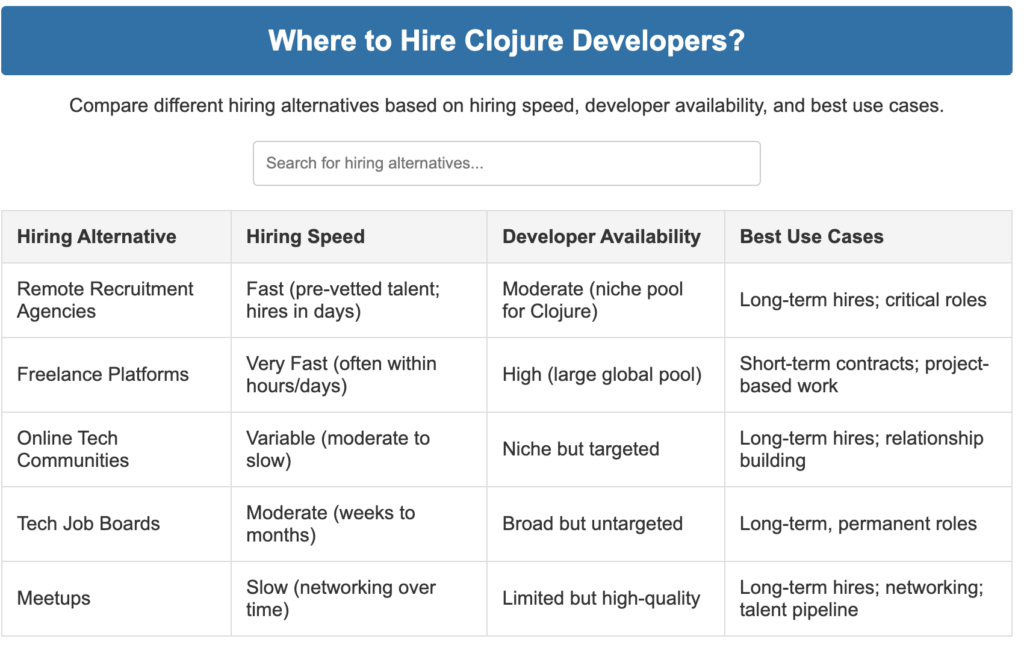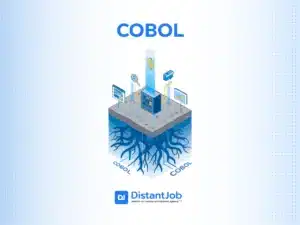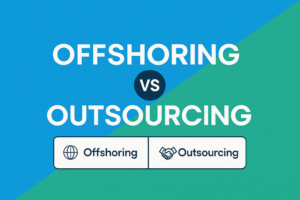If you’re a small business in North America like us, without the time, resources, or hiring budget of a Fortune 500 company, and you need to hire a skilled Clojure developer—what’s the best route to take?
While Clojure offers powerful capabilities for building robust systems, finding talented developers locally often means dealing with sky-high rates and fierce competition from tech giants.
But here’s the good news – there’s no need to limit your search to your local market. Through my years of placing Clojure developers with North American companies, I’ve discovered that expanding your search globally, particularly to tech hubs in Eastern Europe and Latin America, can help you find exceptional talent at more reasonable rates, often 30-40% less than local hires while maintaining the same quality level. Building a strong employer brand and creating an efficient interview process that combines practical coding challenges with cultural fit assessment, followed by comprehensive onboarding and continuous professional development to ensure long-term retention, are equally important in recruiting top Clojure talent.
With a 12% increase in Clojure development in the past year, there has also been a rise in the demand for Clojure experts. This increase is a nod to Clojure’s efficiency and versatility, making it a sought-after skill in the web development sector. When hiring a Clojure developer, it’s crucial to understand not just their coding skills but also their potential to effectively communicate, collaborate, and adapt within your current team.
In this guide, we’ll cut straight to how to hire a Clojure developer, addressing the skills you should seek and interview questions you should ask to find the right talent for your business.
Successfully hiring a Clojure developer involves several key steps that go beyond assessing technical skills. You should start with:
1. Identify the Skill Set Your Team Needs
When hiring a Clojure specialist, it’s important to look for certain skills and qualities that are specific to this language. Here are some of the key skills and qualifications to look for in Clojure developers:
- Clojure is a functional programming language, so the developer must have a deep understanding of functional programming concepts.
- Since Clojure runs on the JVM, knowledge of Java and JVM is important. This includes understanding how to optimize performance and troubleshoot issues that may arise in a JVM environment.
- Understanding various database technologies (like SQL, NoSQL, Datomic) and how to integrate them with Clojure applications is important.
- Clojure is designed to handle concurrency, so the developer should be familiar with concurrency and multithreading.
- The Clojure ecosystem includes a number of libraries and frameworks. Look for developers who are familiar with these tools and have experience working with them. Especially the case with libraries and frameworks that your development team already uses.
- Clojure places a strong emphasis on data structures and algorithms, so make sure that the developer has a solid understanding of these concepts.
- This is highly dependent on your company’s use case, but many Clojure developers work on web applications, so it is important to look for developers who have experience with web development frameworks.
- Clojure is a language that emphasizes elegant solutions to complex problems, so it is important to look for developers who are creative problem-solvers.
- As with any development role, good communication skills are essential. Look for developers who are able to communicate their ideas clearly and work effectively with team members.
When it comes to qualifications, while a formal degree in computer science or a related field is often beneficial, practical experience and a demonstrated track record in Clojure development are the most valuable. To accurately assess this, ensure you conduct a thorough review of the candidate’s portfolio and implement a comprehensive interview process that includes practical skill testing.
2. Attract Top Clojure Talent with your Company Culture
In recent studies, it’s been shown that the number one reason engineers are looking for jobs in 2025 is career development, which means the job market has become competitive enough that career growth has surpassed salary expectations.
35% of candidates actually stated that career development was the most important consideration when searching for a new job. Skill enhancement was the third most popular reason people were looking for new jobs, with 24% of candidates stating this as a reason. This again confirms that skills growth is an important consideration for employees.
This means that you should make sure to create an interesting, genuine, and educational job description that explains your company values, advantages, and perks, such as hybrid work, remote work. paid childcare, and generous PTO, which for many candidates is much more enticing than a single compensation number. For SMBs in North America, embracing flexible and remote work models is not just a perk but a strategic imperative when hiring Clojure developers.
Job descriptions can highly influence the type of professionals you attract. This is why we always advise you to be very specific about the role in your job description. Don’t make generic descriptions or add job titles like “Clojure Guru.”This, rather than attracting candidates, ends up confusing them.
So, how does this look on a real-life Clojure job description? Here’s an example:
Job Title: Senior Clojure Developer (Remote Position)
About Us: At TechInnovate, we’re not just a leading software development company; we’re a hub of innovation and creativity. Recognized for our cutting-edge solutions and dynamic work culture, we’re dedicated to pushing boundaries in the tech world. Join us and be a part of a team that values ingenuity, collaboration, and making a real impact.
Role Overview: We are seeking a seasoned Senior Clojure Developer to join our forward-thinking development team. In this role, you’ll be instrumental in designing and implementing robust, scalable web applications. You’ll play a key role in driving our projects from conception to deployment, working closely with cross-functional teams to deliver innovative software solutions that align with our strategic objectives.
Key Responsibilities:
- Develop and maintain high-quality, scalable, and innovative Clojure-based applications.
- Lead the design and implementation of new features and functionalities.
- Collaborate with product managers, UX/UI designers, and other developers to ensure seamless, high-quality delivery.
- Provide technical leadership and mentorship to junior developers.
- Contribute to continuous improvement of our software practices and processes.
Required Skills and Qualifications:
- At least 5 years of experience in software development, with a focus on Clojure and ClojureScript.
- Strong understanding of the Java Virtual Machine (JVM) and its optimizations.
- Expertise in functional programming and software design patterns.
- Bachelor’s degree in Computer Science or a related field or equivalent experience.
Desired Skills:
- Experience with web development frameworks such as Ring, Compojure, or Reagent.
- Familiarity with database technologies (SQL, NoSQL, Datomic).
Benefits and Perks:
- Competitive salary and comprehensive health benefits.
- Flexible working hours.
- Fully remote position.
- Generous paid time off and a commitment to work-life balance.
Application Process: Interested candidates should submit a resume and a portfolio of relevant work. Shortlisted candidates will be invited to a coding test followed by an interview process.
Equal Opportunity Employer: Our company is proud to be an equal opportunity employer. We celebrate diversity and are committed to creating an inclusive environment for all employees.
You should also have a section on your website or even a dedicated page about the company that describes its culture and benefits.
3. Explore Different Hiring Alternatives

For specialized roles, hiring for SMBs is not as easy as posting a job ad and waiting for applicants. When it comes to hiring Clojure engineers, it’s important to know where to look, and leveraging specialized platforms is far more efficient than relying on general job boards when you have limited resources.
Here are some of the best places to start your search:
1. Remote Recruitment Agencies
As we’ve shown above, the cost of hiring a Clojure developer greatly depends on where they are located. So, by working with remote recruitment agencies, you expand your global reach, gaining access to a diverse pool of talent. Additionally, IT staffing agencies often focus on other aspects of hiring.
Platforms like DistantJob solve the biggest hiring challenges for small and medium businesses through key features: hand-screened talent pools, fast candidate matching, transparent pricing with lower costs, and seamless remote team integration. These features directly tackle the resource limitations, fierce competition for talent, and tight budgets that SMBs face daily.
2. Freelancing Platforms
If you’re looking for Clojure specialists for a short-term project, then freelancers are a great option. Websites like Upwork and Toptal are known for finding freelance developers fast. These types of platforms allow you to review portfolios, read client feedback and easily find professionals with the skills you need.
3. Online Tech Communities
Online tech communities often offer projects and discussions where you can take a glance at a developer’s professionalism and skill set. Platforms like GitHub and Stack Overflow often have Clojure developers involved in projects, giving you insights into their expertise and problem-solving abilities.
One of the great things about software communities is that they are not just about placing job ads. They allow companies to connect with the community directly through Slack, Reddit, and local meetups. This allow you to recruit in a softer manner, create better relationships, and find candidates who are embedded in the ecosystem.
When it comes to communities around less mainstream technologies, many developers do not want to hear the hard sell from recruiters. They want to connect with the company and the people that they might be working with and see what types of projects they are working on. This works both ways, as the company can also form an opinion about the developer.
4. Tech Job Boards
Websites such as Dice, Crunchboard, and Jobspresso specialize in job listings for technology roles. On these platforms, you have the option to post your own job advertisements or browse through the profiles of professionals with expertise in Clojure.
5. Clojure Meetups
While attending Meetups can be a more cost and time-consuming strategy, it’s still a good alternative to get to experience first-hand the expertise and experience of Clojure developers. Some meetups, like the Clojure Berlin meetup, actively encourage companies to advertise their job. This may include coding exercises, problem-solving challenges or even reviewing their past projects related to Clojure development.
4. Craft an Efficient Clojure Developer Interview Process
The best way of evaluating a candidate’s Clojure proficiency is through evaluations. However, rather than generic online tests make sure that you’re evaluating the skills your team needs.
An interview process for Clojure developers should test for some of the following skills:
- Clojure Basics: Knowledge of basic syntax and Clojure’s core data structures, including lists, vectors, maps, sets, variables, and namespaces.
- Functional Programming: Understanding of first-class and higher-order functions like map, filter, and reduce; recursion and recur; function composition; pure functions; immutability, which leads to more predictable and reliable code and parallelization.
- Concurrency: Knowledge of Software Transactional Memory (STM), Agents, Futures, Promises, Refs, Atoms, and core.async. Concurrency is crucial for Clojure as it is built for performance and real-time programming.
- Connection to Java: Clojure’s super power is its ability to connect to an existing Java system, use Java classes and libraries, and call Java methods. Since Clojure runs on the JVM, it can easily connect to one of the most popular languages in the world.
- The Clojure Ecosystem: Familiarity with build tools (Leiningen, deps.edn, Boot), REPLs, libraries (Ring, Compojure, Pedestal, Reagent, re-frame, Rum), testing frameworks (clojure.test, Midje, Spec), databases (PostgreSQL, MySQL, MongoDB, Datomic), microservices, and message queues (Kafka, RabbitMQ).
- Cloud & DevOps: Experience with cloud providers (AWS, GCP, Azure), containers (Docker, Kubernetes), CI/CD (Jenkins, CircleCI, GitHub actions), and monitoring and profiling.

Therefore, the interview questions should be more conceptual, rather than simply testing the candidate’s knowledge of the functions and syntax. Companies that have software developers who are not trained in functional programming should consider training their interviewers on the concepts of functional programming and Clojure so that they can properly evaluate the candidates. Choosing a developer who thinks the Clojure language is just like any other language because they know the syntax and a few functions is a recipe for disaster.
Beyond technical skills, we always advise to also assess how well the candidate aligns with your company culture and values.
Look for people who are curious, who want to make things better, who want to improve themselves, and most importantly, who care about the team more than themselves. In fact, besides the obvious traits like intelligence and experience, the best qualities for niche technology candidates are flexibility, curiosity, and initiative.
SMBs should try to assess for critical transferable skills including learning, resourcefulness, and problem-solving. Does the candidate “get things done,” communicate well, and accept feedback?
5. Onboarding and Retention Best Practices for Clojure Talent
Hiring niche employees like Clojure developers is expensive and difficult, and if a company is not able to keep these employees, they can lose all the efficiencies gained in the hiring process and end up paying an even heftier price.
Therefore, when companies invest in onboarding, training, and creating a great company culture, they earn a return on investment not only in terms of reduced re-hiring costs, but also because they will have a more stable, productive team. Clojure experts are typically experienced, senior developers who are passionate about their language, and if you give them a place where they can grow, be challenged, and use their favorite language, you will gain a loyal employee for many years to come.
Investing heavily in onboarding and training is not merely beneficial but a full-time commitment. Prioritize a seamless onboarding experience. Furnish comprehensive documentation to deepen employees’ understanding of the company and its processes.
Facilitate a smooth transition by introducing them to key team members and providing an insightful overview of company policies and practices. Additionally, during their initial weeks remember to set clear expectations and milestones to help them integrate seamlessly into the team.
How Much Does it Cost to Hire Clojure Developers?
Hiring a Clojure developer in the US costs around $125.000/year, depending on the specialization. In addition, pay rates vary according to the developer’s location, year of experience and set of skills. Without impacting the last two factors, you can save money by hiring remotely outside the US.
Here are some values for Clojure developer salaries we’ve researched using values sourced from Talent.com, Glassdoor and DeveloperSalary.com:
| Country | Salary per year | Salary per month | Salary per hour |
| USA | $125,320 | $10,443 | $65 |
| Mexico | $48,168 | $4,014 | $25 |
| Brazil | $41,232 | $3,436 | $21 |
| Poland | $47,172 | $3,931 | $25 |
9 Clojure Interview Questions to Ask Your Candidate

To ensure you’re bringing the right talent on board, here are key Clojure interview questions to ask your developer candidates:
1. Coding tasks
If you want to hire a Clojure developer, you need to make sure that they aren’t just an expert at theoretical questions, but that they also know how to do some common coding tasks.
2. Write a recursive function that generates every permutation of an input string and returns them as a set
With this question from Interview Cake, your potential developer doesn’t need to spend their time focusing on efficiency. Instead, it’s meant to see if they can write this code with Clojure. Assume each character in the input string is unique, and the function is allowed to have loops, as long as it is also recursive.
Let’s take a look an example solution to this code:
(defn- remaining-subs [s idx]
(str (subs s 0 idx)
(subs s (inc idx) (count s))))
(defn permutations
"O(n!) time solution - recursively computing permutations."
[s]
(if (<= (count s) 1)
#[s]
(reduce-kv
(fn [permutations-so-far idx char]
(->> (permutations (remaining-subs s idx))
(map (partial str char))
(into permutations-so-far)))
#{}
(vec s))))Keep in mind that this is just one solution, but not the only possible solution as there are different ways of accomplishing the question. If you don’t want to worry about trying to interview for a developer in a language you don’t know or understand, let us find you a highly-vetted expert so you can get straight to work.
3. There is a pre-existing function rand5() that generates a random integer from 1 to 5. Use it to write the function rand7() that generates a random integer from 1 to 7.
This commonly asked interview question is meant to simulate a 5-sided die and then becoming a 7-sided die. It makes sure that your developer knows how to write code correctly in the language of your choice, that they have substantial logic skills, and that they can incorporate pre-existing functions, perhaps created by another team member or before they came on-board, to the desired result.
The first method already returns each integer with equal probability, and rand7() must do the same.
Let’s take a look at a sample solution:
(defn- random [floor ceiling]
(+ floor (rand-int (inc (- ceiling floor)))))
(defn- rand5 []
(random 1 5))
(def ^:private rand7-matrix
(->> (range 1 8)
(cycle)
(take 21)
(partition 5 5 (repeat 0))
(mapv vec)))
(defn rand7-with-matrix []
(loop [row (dec (rand5))
column (dec (rand5))]
(if (and (= row 4) (> column 0))
(recur (dec (rand5)) (dec (rand5)))
(get-in rand7-matrix [row column]))))
(defn rand7 []
(loop [rand-a (rand5)
rand-b (rand5)]
(let [out (inc (+ (* (dec rand-a) 5) (dec rand-b)))]
(if (<= out 21)
(inc (mod out 7))
(recur (rand5) (rand5))))))4. Find the highest product you can get from any three integers in a given list of integers
This coding task is relatively simple, but it confirms that they have a solid grasp of the logic of Clojure as well as how to properly write it.
The input list_of_ints that we’ll use in this given example will always have at least three integers, so your potential coders won’t have to test for this outlier.
(defn- rotation
"Rotates bucket of k length around the bottom and top of arr by idx."
[arr k idx]
(let [top (- (count arr) (- k idx))]
(vec (concat (subvec arr 0 idx)
(subvec arr top)))))
(defn highest-product-of-k
"0(nlgn) time + 0(n + (k + k^2)) space solution."
[k arr]
(if (>= k (count arr))
(reduce * arr)
(->> (range (inc k))
(map (partial rotation (vec (sort arr)) k))
(map (partial reduce *))
(apply max))))5. Write a Clojure function to parse a JSON string and return a map with keys sorted alphabetically. Discuss the choices made in your implementation.
(def counter (atom 0))
(defn increment-counter [] (swap! counter inc))
(def agent-example (agent 0))
(send agent-example inc)Atoms provide a way to manage shared, mutable state with safe, atomic updates. Here, counter is an atom that is incremented safely using swap!. Agents are used for asynchronous state changes. agent-example demonstrates an asynchronous increment.
Atoms are used when synchronous updates are needed, while agents are useful for asynchronous operations.
6. Write a Clojure function to parse a JSON string and return a map with keys sorted alphabetically. Discuss the choices made in your implementation
(require '[clojure.data.json :as json])
(defn parse-and-sort-json [json-str]
(into (sorted-map) (json/read-str json-str)))This function uses the clojure.data.json library to parse the JSON string. json/read-str converts the JSON string into a Clojure map, and into (sorted-map) then sorts this map by keys. The choice of sorted-map ensures that the keys are automatically sorted in alphabetical order.
7. Explain transducers in Clojure. Provide an example of creating a custom transducer and using it with reduce.”
(defn filter-even [rf]
(fn
([] (rf))
([result] (rf result))
([result input]
(if (even? input)
(rf result input)
result))))
(reduce (filter-even conj) [] [1 2 3 4 5])Transducers are composable algorithmic transformations. They decouple the process of transforming data from the context of the transformation (e.g., collections, streams). Here, filter-even is a transducer that filters even numbers. It’s used with reduce, applying the conj function only to even numbers.
8. Write a function in Clojure that takes a large dataset and efficiently finds the top N elements. Explain how your solution handles performance considerations
(defn top-n-elements [n data]
(->> data
(sort >)
(take n)))This function sorts the dataset in descending order and then takes the first N elements. For large datasets, sorting can be a performance bottleneck. One way to optimize this is by using a priority queue or a min-heap, which can handle large data more efficiently, especially when only a small subset of the top elements is needed.
9. Write a Clojure function that takes a list and returns a new list with every second element removed. Explain your approach.
(defn remove-second [lst]
(keep-indexed (fn [idx x] (if (odd? idx) x)) lst))This function uses keep-indexed, which keeps elements based on their index. The anonymous function (fn [idx x] (if (odd? idx) x)) returns the element x only if its index idx is odd, effectively removing every second element (at even indices, considering 0-based indexing).
10. How would you implement a memoized Fibonacci function in Clojure? Discuss the benefits of memoization in this context.
(def fib
(memoize (fn [n]
(if (or (= n 0) (= n 1))
n
(+ (fib (dec n)) (fib (- n 2)))))))Memoization stores the results of expensive function calls and returns the cached result when the same inputs occur again. In the case of the Fibonacci sequence, memoization prevents the exponential growth in computation by caching previously computed values.
11. Can you demonstrate how to handle exceptions in Clojure using try/catch? Write a sample code snippet.
(try
(/ 10 0)
(catch ArithmeticException e
(println "Caught an arithmetic exception: " (.getMessage e))))This code tries to divide 10 by 0, which will throw an ArithmeticException. The catch block captures this exception, and the message is printed out, demonstrating exception handling in Clojure.
Conclusion
Hiring Clojure developers is not simple, especially for North American SMBs, because it is a niche language. Clojure professionals are highly experienced, and it’s a battle against large companies. That said, through a comprehensive, mindful, and aggressive strategy, it can be done.
Success depends on knowledge of the Clojure space, including the fact that Clojure developers are a rare breed and can often replace multiple developers with their “super powers.” Therefore, the search should be more targeted and limited in scope, offering perks and supportive working environments to find the best developers with the most excellent fit.
If you’re looking to hire an expert Clojure developer, then DistantJob can be your partner and find you who you need to complete your projects successfully. We can get you the developers you need and that fit your company in just under two weeks. Interested? Contact us or visit our offices today!





